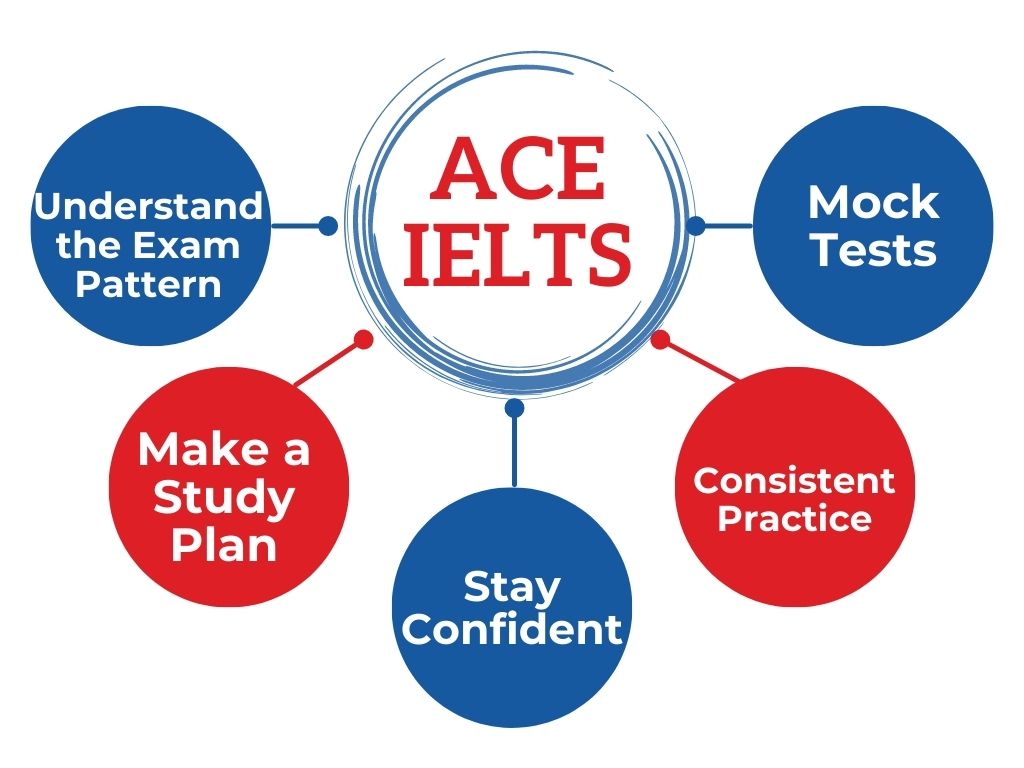Fluency is a crucial component of the IELTS Speaking test. It demonstrates your ability to communicate effectively and showcases your command of the English language. Developing fluency through practice and targeted strategies is essential to excel in this test. This blog will explore practical tips and techniques to help you improve your fluency and perform confidently in the IELTS Speaking test.
Engage in Regular Conversation Practice
Regular conversation practice is one of the most effective ways to enhance fluency. Seek out language partners or join study groups where you can discuss various topics. Conversing with others improves your spoken English skills and allows you to practice spontaneous speaking, develop your vocabulary, and gain confidence in expressing your thoughts in English.
Expand Your Vocabulary
A wide-ranging vocabulary is essential for fluency. To improve fluency, it is crucial to expand your vocabulary. Learn new words and phrases and actively incorporate them into daily conversations. Read books, newspapers, and online articles to expose yourself to different vocabulary. Make a habit of noting unfamiliar words and their meanings, and use them in your speaking practice to become more comfortable with their usage.
Think in English
To develop fluency, it is beneficial to train your mind to think in English rather than translating from your native language. When you encounter a thought or situation, try to express it in English mentally. This practice helps you become more comfortable with the language and improves your ability to express your ideas spontaneously during the speaking test.
Practice Speaking at Different Speeds
Maintaining a consistent pace while speaking is essential in the IELTS Speaking test. To enhance fluency, practice speaking at different speeds. Start by speaking slowly and gradually increase your speed while maintaining clarity and coherence. This exercise helps you become more adaptable and fluent in your speech, enabling you to respond effectively to various speaking tasks in the test.
Use Filler Phrases
Using filler phrases strategically during the IELTS Speaking test can help you maintain fluency while gathering your thoughts. Filler phrases such as "Well," "You know," "Actually," and "I mean" provide a brief pause that allows you to organise your ideas and continue speaking smoothly. However, use these phrases sparingly and naturally to avoid sounding repetitive or unsure.
Develop Paraphrasing Skills
Paraphrasing is a valuable skill that enhances fluency and demonstrates language proficiency. Practice paraphrasing questions and responses to avoid repetition and showcase a broader range of vocabulary and sentence structures. This skill allows you to convey your ideas effectively, even when faced with unfamiliar or challenging questions in the IELTS Speaking test.
Record and Evaluate Yourself
Recording and evaluating your speaking practice sessions can provide valuable insights into your fluency, pronunciation, and speaking skills. Listen to the recordings, identify areas for improvement, and work on enhancing your fluency by focusing on specific aspects, such as clarity, pace, and coherence. Self-evaluation allows you to track your progress and make necessary adjustments to improve your performance.
|
FAQs
How long does it take to improve fluency in speaking?
The time required to improve fluency varies from individual to individual. Consistent practice and practical strategies can lead to noticeable improvements in months. However, the key is to practice regularly and focus on targeted areas for improvement.
Can I improve my fluency without a language partner?
While having a language partner is beneficial, you can still improve your fluency without one. You can engage in self-practice by recording your speech, participating in online language forums, or even practising speaking aloud in front of a mirror. The key is to simulate real-life conversations as much as possible.
Are filler phrases necessary in the IELTS Speaking test?
Filler phrases help maintain fluency and provide a brief pause to gather your thoughts. However, it is essential to use them naturally and sparingly. Using filler phrases can help the coherence of your speech. Practice using them strategically to strike the right balance.
How can I practice speaking at different speeds?
To practice speaking at different speeds, you can start by speaking slowly and gradually increasing your speed over time. Reading aloud or conversing with a language partner can also help you practice different speaking speeds. The goal is to find a pace that maintains clarity and coherence.
How important is the pronunciation for fluency?
Pronunciation plays a significant role in fluency. Precise and accurate pronunciation helps convey your ideas effectively and ensures that others can understand you easily. Practice pronunciation exercises, listen to native speakers, and seek feedback from language experts to improve your pronunciation skills.
